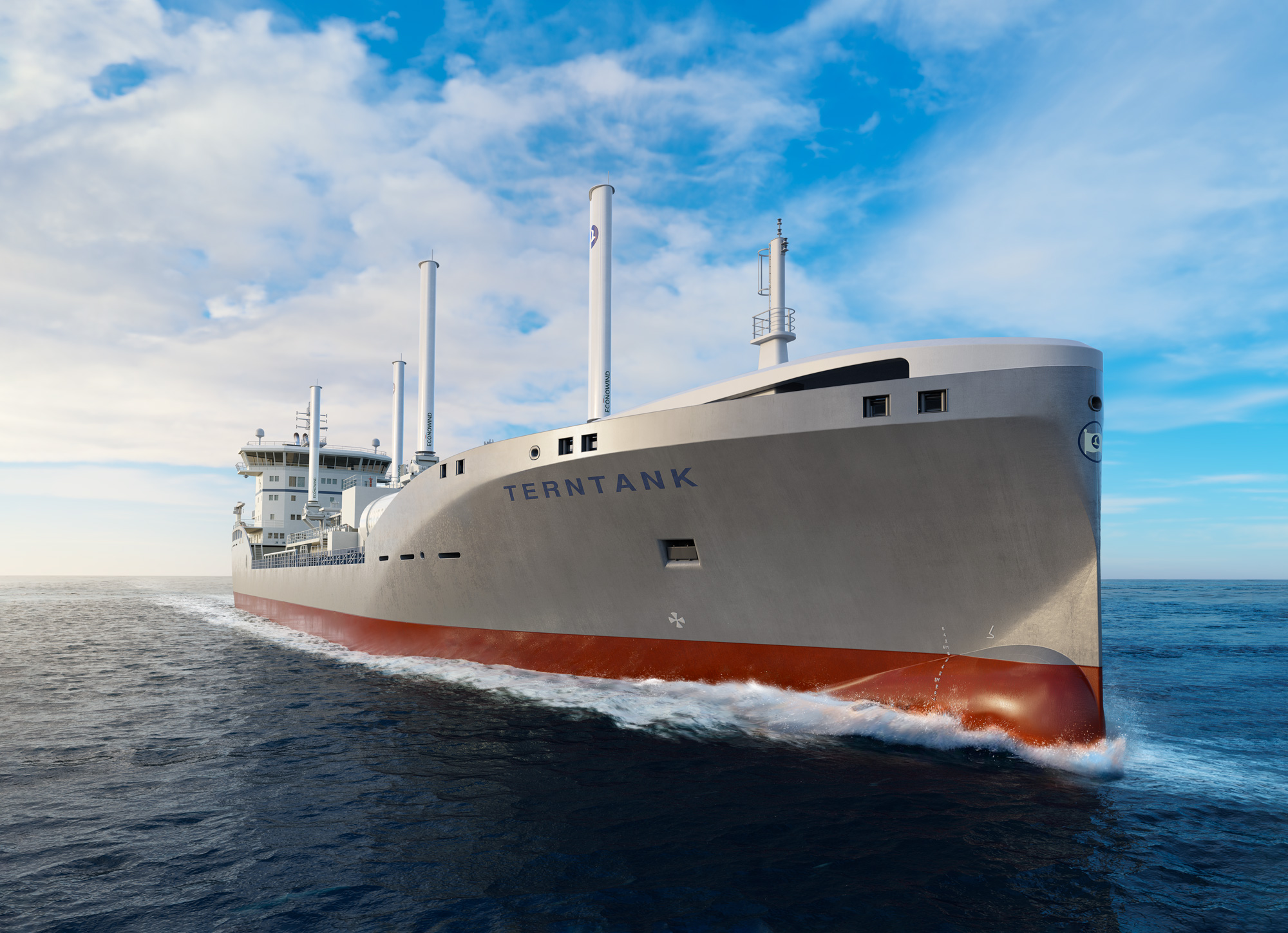
The eMETHANOLxWSolution project will build a groundbreaking tanker vessel powered by methanol-fuelled engines and enhanced with wind propulsion technology. Designed to transport chemicals in bulk, this cutting-edge tanker will significantly reduce carbon emissions and promote sustainable maritime innovation.
Receiving nearly €2.75 million in grants from the Innovation Fund, the vessel will soon operate in the Baltic and North Sea regions, connecting the Port of Gothenburg in Sweden with ports in Finland and Norway. With a capacity to carry 15,000 tonnes of chemicals, it can replace traditional tankers that operate on fossil fuels, making shipping cleaner and more efficient. Currently in the final stages of development, the next steps include constructing the vessel, installing the wind propulsion system, and converting the engine to run on methanol.
To power the new tanker, the project team developed a two-stroke diesel engine converted to run on green methanol, a cleaner alternative fuel produced from renewable sources and without polluting emissions. Alongside this, a wind propulsion system featuring ventilated wing sails helps cut fuel consumption by harnessing wind energy. After reviewing 20 years of wind data, the team determined that this sail technology was the best fit for the region’s weather patterns.
"Wind alone is not enough to power a ship all the time, so we needed to couple it with a reliable fuel source,” explained Claes Möller, CEO at Tärntank Ship Management AB.
“After comparing options like ammonia and liquefied natural gas (LNG), we found green methanol to be the most accessible and environmentally-friendly choice.”
Coordinated by Tärntank Ship Management AB, the eMETHANOLxWSolution project is expected to reduce greenhouse gas (GHG) emissions by around 4,000 tonnes of CO₂e annually, thanks to its dual-propulsion system. Over ten years, it is estimated that this could save more than 44,000 tonnes of CO₂e, equivalent to removing 41 million kilometers driven by cars in Europe each year . In addition to the project contribution, features like onboard batteries and shore power help reduce greenhouse gas emissions by providing energy storage and enabling the ship to rely on cleaner power sources while docked.
Compared to similar vessels without these upgrades, the new tanker will produce far fewer CO₂ emissions, improving air quality and contributing to healthier local environments.
Safety also played a key role in the project’s development. A hazard identification (Hazid) process was conducted with input from crew members, engineers, regulators, and equipment manufacturers. Hazid is a risk identification technique that aims to identify potential hazards associated with a process, system, or operation. This thorough review ensured that using methanol and wind propulsion would not compromise the vessel’s structural integrity or crew safety.
The European shipping industry represents between 3 and 4% of the EU’s total CO2 emissions in 2021. As the EU transitions towards a low-carbon economy, innovative solutions are needed to reduce the impact of maritime operations. By leveraging the power of wind and methanol, the eMETHANOLxWSolution project demonstrates how innovation and teamwork can support the shipping industry, reduce its climate and environmental footprint and support Europe’s broader climate goals.
About the Innovation Fund
The Innovation Fund, financed by EU Emissions Trading System revenues, is one of the world’s largest funding programmes for the demonstration of innovative low-carbon technologies. The Fund focuses on highly innovative clean technologies and major flagship projects with European added value that can bring significant greenhouse gas emission reductions.
- Start date
- 1 Oct 2023
- Project locations
- SwedenFinland
- EU contribution
- €2 755 885
